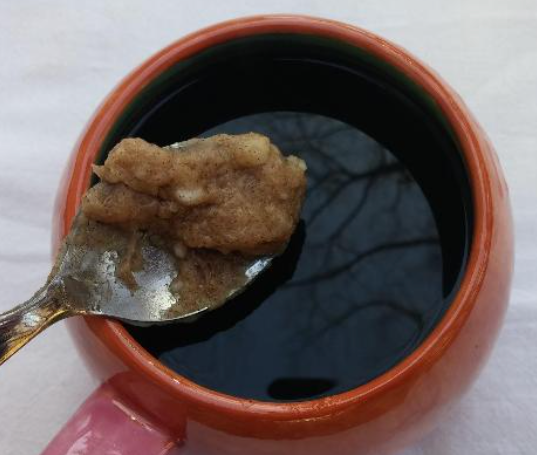Dietitian's Coffee Trick: Boost Your Fat-Burning with Three Ingredients
Can't give up your coffee? A weight-loss trick involving three coffee additions is taking the internet by storm.
 In the circle: David Wolfe
In the circle: David WolfeMany of us can't fathom giving up our daily coffee, even for a diet. I'm one of them, so I was thrilled to discover this tip from American nutritionist David Wolfe.
According to him, adding three specific ingredients to your coffee can turn it into a 'catalyst' for burning fat.
"My coffee hasn't been the same since I found this trick," he writes in a lengthy blog post. "Just three ingredients, twice a day, and your body will start burning fat rapidly."
Before you ask, yes, you can taste the difference, but who cares?! It's still your morning coffee, for those who need it. Although the flavor is slightly different, it's definitely drinkable.
 The article's headline as it appears on David Wolfe's website, in English
The article's headline as it appears on David Wolfe's website, in EnglishWolfe suggests adding the following to your coffee: 2 teaspoons of honey, a teaspoon of ground Ceylon cinnamon, and a teaspoon of coconut oil. Mix them well until they form a paste:

"Yes, honey contains sugar, which might seem strange for weight loss, but it has a lower glycemic index than sugar and boosts energy. Cinnamon is known for its health benefits, but not everyone knows it can affect our metabolism. Packed with antioxidants and anti-inflammatory properties, cinnamon lowers blood sugar and speeds up metabolism, making it a natural fat burner. We believe cinnamon enhances the metabolism of blood sugar, breaking it down into energy, thus storing fewer fatty acids. Similarly, though coconut oil is a fat, the body doesn't store it as one. Many nutritionists, including myself, recommend using it for cooking over regular oils. When the body metabolizes coconut oil, heat is released, aiding in fat burning."
Wolfe further writes that when these three ingredients pass together through the digestive system, "they boost and improve your metabolism. If you drink this daily without increasing your food intake, you'll see promising results after just one week," he promises but adds, "Remember, results vary based on your diet and factors like exercise and reasonable sleep times."
What Exactly is Ceylon Cinnamon?
It turns out that most cinnamon sold in regular grocery stores isn't what this article refers to. It's less 'genuine' than Ceylon or True Cinnamon, derived from the Cinnamomum verum plant.
Interesting to note, Cassia cinnamon (the kind typically sold) and Ceylon cinnamon come from different plants. The cinnamon we're familiar with is 'bitter' compared to Ceylon cinnamon, which some call 'sweet cinnamon' for its mild taste.
This cinnamon's scientific name is Cinnamomum verum, which translates in part to 'true cinnamon,' known for its ability to regulate blood sugar.
The main difference between the two types is their coumarin levels—a natural substance with anticoagulant properties. Ceylon cinnamon has very low coumarin levels, while Cassia cinnamon has high levels. Due to this, many organizations recommend avoiding large amounts of Cassia cinnamon.
How to tell them apart? Ceylon cinnamon can be found in select natural health stores and will have 'organic' labeling.

